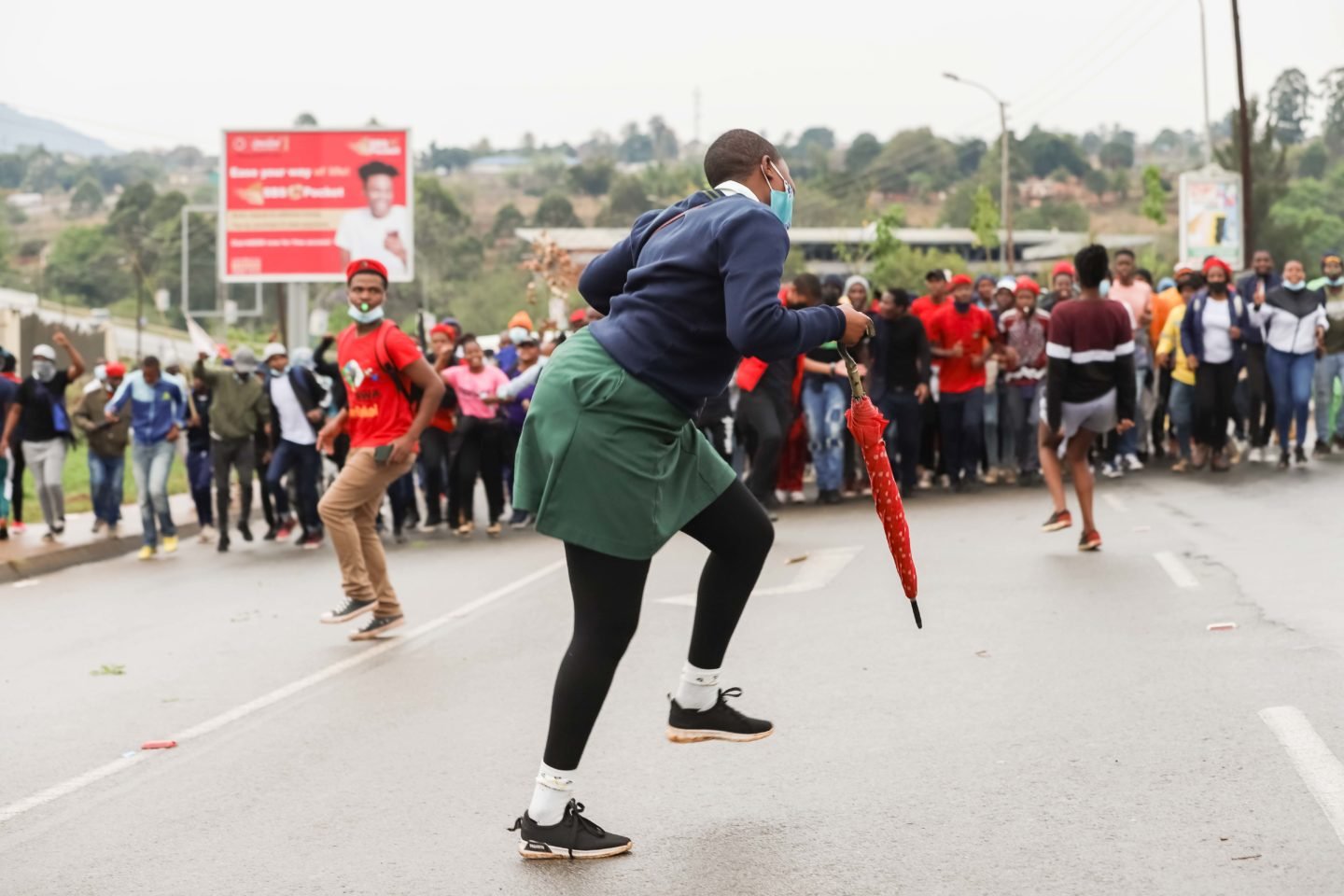The International Commission of Jurists (ICJ) today calls on the Eswatini government to re-open schools immediately and to do what is necessary to protect the rights of all children and youth, including against violence, during ongoing public protests.
Prime Minister Cleopas Dlamini announced last week that the government had taken a decision to close schools indefinitely with immediate effect. This comes after schools in the country only re-opened in September since their closure in March on account of COVID-19 restrictions. The closures followed the youth and school children across the country joining the protests in October.
During the week of 11 October an unknown number of students from schools countrywide were observed to be chanting “Mswati must fall” echoing the call which pro-democracy protestors have been calling for over several months and “Release our MPs”. The Swaziland National Association of Teachers confirmed that police and soldiers were deployed to schools and that some 82 schools countrywide had been closed.
“We are very concerned that school children and youth participating in protests which saw the burning of schools and school equipment in various parts of the country are now in a vulnerable situation. This is borne out of an increasingly violent response to these protests by security forces which has resulted in arrests and injuries to many including children,” said Kaajal Ramjathan-Keogh, ICJ Africa Director.
The chants of the students were in reference to two members of Parliament, Mduduzi Bacede Mabuza and Mthandeni Dube who remain incarcerated since their arrest on the 25th of July. Bail has repeatedly and arbitrarily been denied to them. According to Lucky Lukhele of the Swaziland Solidarity Network, 17 students including a seven-year-old were arrested earlier in the week. There are reports that another two students were injured from gunshots. There were also some students arrested from John Wesley Secondary and Mater Dolorosa High School.
The army was initially deployed at schools throughout the country on 11 October and subsequently all schools have been closed. The ICJ is seriously concerned given that final examinations are pending in the coming weeks, there will be a negative impact on students who ought to be sitting for their National Senior Certificate examination.
“Education is a human right which the authorities should give highest priority to ensuring. It is indispensable to the well-being and development of all youth and children,” added Ramjathan-Keogh.
ICJ also reminds the Eswatini government of its obligations to protect the rights of children, including the rights to education, guaranteed under the country’s 2012 Children’s Welfare and Protection Act and the UN Convention on the Rights of the Child and the Covenant on Economic Social and Cultural Rights.
ICJ calls on the Eswatini authorities to guarantee the protesters’ rights to freedom of expression and freedom of peaceful assembly and association. These rights are enshrined in international human rights law, including in the International Covenant on Civil and Political Rights and the African Charter on Human and Peoples’ Rights, both of which are binding on Eswatini, as well as being protected by Sections 24 and 25 of the Eswatini Constitution.
Contact:
Kaajal Ramjathan-Keogh, Director Africa Programme, Kaajal.Keogh@icj.org
Tanveer Jeewa, Legal and Communications Officer, Tanveer.Jeewa@icj.org





